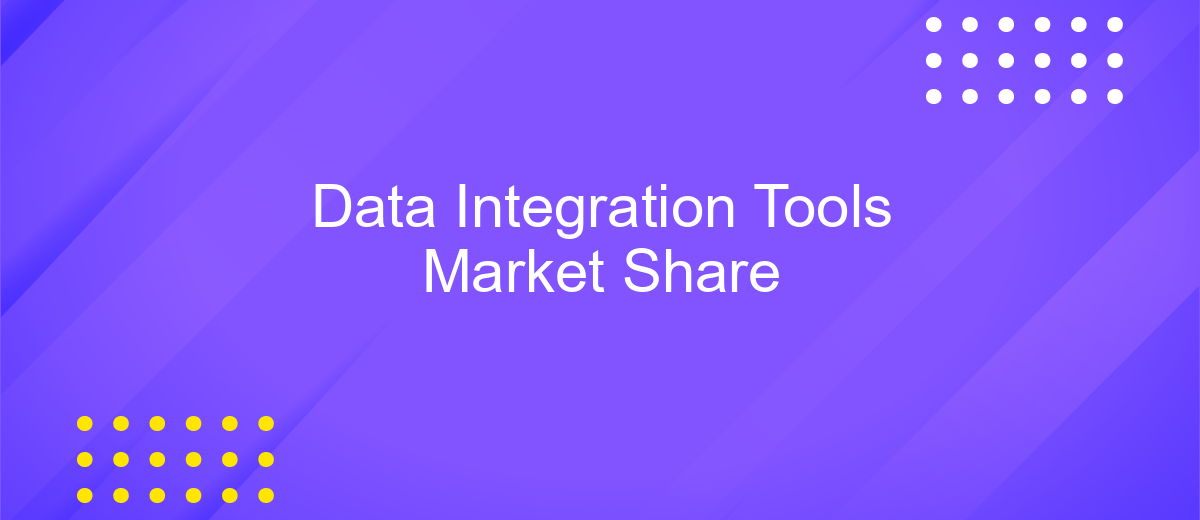Data Integration Tools Market Share
The Data Integration Tools market is experiencing significant growth as organizations increasingly seek efficient ways to manage and utilize their data. These tools play a critical role in consolidating disparate data sources, ensuring seamless data flow, and enhancing decision-making processes. This article explores the current market share of data integration tools, key players, and emerging trends driving industry advancements.
Market Overview
The data integration tools market has experienced significant growth in recent years, driven by the increasing need for businesses to manage and integrate vast amounts of data from various sources. These tools enable organizations to streamline their data processes, ensuring seamless data flow and enhancing decision-making capabilities. As more companies recognize the value of data-driven insights, the demand for robust data integration solutions continues to rise.
- Enhanced data management and accessibility
- Improved decision-making processes
- Seamless integration of disparate data sources
- Scalability to handle growing data volumes
- Support for real-time data processing
Key players in the market are continuously innovating to offer more advanced and efficient tools, catering to the evolving needs of businesses across various industries. With the advent of technologies like artificial intelligence and machine learning, data integration tools are becoming more sophisticated, providing deeper insights and greater operational efficiencies. The market is poised for further expansion as organizations increasingly prioritize data integration as a critical component of their digital transformation strategies.
Competitive Landscape

The data integration tools market is highly competitive, with numerous players vying for market share. Leading companies such as Informatica, Talend, and Microsoft dominate the landscape with their comprehensive solutions and robust customer bases. These industry giants are continually innovating to enhance their offerings, ensuring they meet the evolving needs of businesses seeking seamless data integration. Additionally, smaller firms and startups are making significant strides, leveraging agility and niche expertise to carve out their own segments of the market.
Among the emerging players, ApiX-Drive stands out for its user-friendly approach to data integration. This service simplifies the process of connecting various applications and automating workflows, making it accessible even to non-technical users. By offering a wide range of integrations and an intuitive interface, ApiX-Drive is attracting a growing customer base, positioning itself as a formidable competitor in the market. As the demand for efficient and scalable data integration solutions continues to rise, the competitive dynamics of this market are expected to intensify further.
Segment Analysis

The data integration tools market is witnessing significant growth, driven by the increasing need for businesses to manage and analyze large volumes of data efficiently. These tools are essential for organizations aiming to consolidate data from disparate sources into a unified view, enabling better decision-making and operational efficiency.
- Cloud-Based Tools: With the rise of cloud computing, many organizations are adopting cloud-based data integration solutions for their scalability and flexibility.
- On-Premise Tools: Traditional on-premise data integration tools remain popular among businesses with stringent data security and compliance requirements.
- Hybrid Solutions: Combining the best of both worlds, hybrid data integration tools offer a balance between cloud and on-premise capabilities, catering to diverse business needs.
Overall, the data integration tools market is characterized by a diverse range of solutions tailored to meet the varying demands of different industries. As data continues to grow in volume and complexity, the adoption of these tools is expected to rise, further driving market expansion and innovation.
Regional Analysis

The Data Integration Tools market demonstrates significant regional disparities, driven by varying levels of technological adoption, economic development, and industry demands. North America leads the market, bolstered by the presence of major technology companies and a robust IT infrastructure. Europe follows closely, with substantial investments in digital transformation initiatives.
In the Asia-Pacific region, rapid industrialization and the growing importance of big data analytics are propelling market growth. Countries like China and India are emerging as key players due to their expanding IT sectors and increasing focus on data management solutions. Meanwhile, Latin America and the Middle East & Africa are witnessing steady growth, albeit at a slower pace, primarily due to economic constraints and lesser technological penetration.
- North America: Dominant market share, advanced IT infrastructure.
- Europe: Significant investments in digital transformation.
- Asia-Pacific: Rapid growth, driven by industrialization and big data analytics.
- Latin America: Steady growth, hindered by economic challenges.
- Middle East & Africa: Gradual adoption, limited by technological penetration.
Overall, the global Data Integration Tools market is poised for substantial growth, with each region contributing uniquely based on its economic and technological landscape. Companies are increasingly recognizing the importance of data integration, driving innovation and competition across different geographies.


Key Trends and Forecasts
The data integration tools market is experiencing significant growth, driven by the increasing need for businesses to manage and analyze large volumes of data from diverse sources. Key trends include the rise of cloud-based integration solutions, which offer scalability and flexibility, and the growing adoption of AI and machine learning to enhance data processing capabilities. Additionally, there is a notable shift towards self-service data integration platforms, empowering non-technical users to handle data tasks efficiently.
Looking ahead, the market is expected to expand further, with a focus on improving real-time data integration and ensuring data security and compliance. Tools like ApiX-Drive are gaining popularity due to their user-friendly interfaces and ability to seamlessly connect various applications and services. As companies continue to prioritize data-driven decision-making, the demand for robust and versatile integration tools will likely increase, fostering innovation and competition in the sector.
FAQ
What is the current market share of data integration tools?
What are the key features to look for in a data integration tool?
How can data integration tools benefit my business?
What are some challenges associated with data integration?
Are there any tools that simplify the process of setting up data integrations?
Apix-Drive will help optimize business processes, save you from a lot of routine tasks and unnecessary costs for automation, attracting additional specialists. Try setting up a free test connection with ApiX-Drive and see for yourself. Now you have to think about where to invest the freed time and money!

